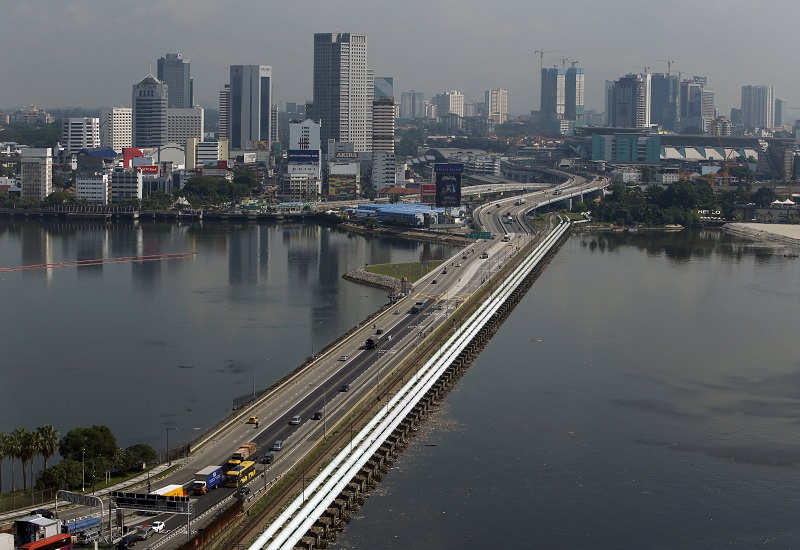JOHOR BARU, Jan 2 — Johor PKR deputy chief Jimmy Puah Wee Tse said the termination of the Kuala Lumpur-Singapore High Speed Rail (HSR) was a “missed opportunity” not only for Johor but Malaysia as well.
He said the termination of the HSR had clearly exposed Perikatan Nasional (PN) government’s weakness.
In a statement today, Puah said the many news agencies since November, last year have been reporting on the possibility that the HSR’s Bilateral Agreement will be terminated.
“Many inks have been spilled over this matter. Some have argued on the decisiveness of the government to stop the project, while some have commented on how we ended up in this mess,” said Puah.
At midnight yesterday, the HSR’s Bilateral Agreement between Malaysia and Singapore was automatically terminated after it passed the deadline on December 31, 2020.
Puah said the HSR could have been a game-changer and a great economic catalyst if it was managed well from the start.
“In the end, all we ended up with is a compensation bill of RM300 million or more,” he said.
Puah, who is also the Bukit Batu assemblyman, explained that the HSR’s original route proposal would have covered not only Kota Iskandar but also several towns in Johor’s central and northern parts.
“The spillover and multiplier effect from the HSR would have been enormous,” he said, adding that any changes to the original plan by excluding Singapore would doom the project, as the project needs the ridership especially from Singapore to cross-subsidy the weaker routes.
The former Johor executive councillor in charge of international trade, investment and utilities under the previous Pakatan Harapan (PH) state administration said he doubts that there will be any substantial plans to realign the HSR route to end in Johor Baru as it is not economically viable.
He believes that the issue is more of a political ruse to divert the people’s attention from the reality that the PN government is clueless and politically inept to push it through.
“The axing of the HSR once again amplifies the issue of a weak and unstable government, whereby other countries will be duly cautious and concerned to negotiate and commit any long-term arrangement with us.
“The prolonged political situation of a weak Muhyiddin-led government will further erode other countries and investors’ confidence in Malaysia as shown by the falling foreign direct investment (FDI) and downgrading of Fitch ratings.
“The stillborn HSR is just the latest example, which I believe will have many more to follow,” said Puah, referring to Prime Minister Tan Sri Muhyiddin Yassin and his PN administration.
Yesterday, Malaysia and Singapore both issued separate statements to announce the automatic termination of the HSR Bilateral Agreement.
Singapore’s Ministry of Transport said Putrajaya had allowed the HSR bilateral agreement to be terminated and has agreed to compensate the island republic for costs already incurred in fulfilling its obligations under the agreement.
Malaysia, on the other hand, said it would honour its obligations under the HSR Bilateral Agreement with Singapore and pay compensation.



















